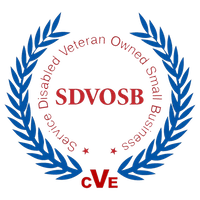Consider your role and how others see you. In doing so, you will discover the three perspectives of “You”. You’ll find, too, that these three perspectives of “You” are directly involved in your ability to manage and lead. 
In the following video, I discuss these three Yous, and how each perspective may help, harm, and/or galvanize your forward motion as both a leader and as a member of a team.
The three perspectives of “You” fall into intuitive categories. The first You is how you see yourself. The second, how others see you. Be aware of both visions of yourself and manage them effectively. Avoiding the recognition of these elements can lead to risks which may not be immediately apparent.
If you place your chief emphasis on how people perceive you (i.e., the second category of You), you potentially stymie your own growth. Creating goals around what other people think you are or should be can limit yourself … to their concept of You. In other words, you quite possibly will never grow to your true potential if you limit yourself only to be what we think others want us to be.
When you reconcile how you see yourself and how others see you, “You One” and “You Two,” there is a good chance of drawing out the third You – the real You.
There are several ways to pursue this reconciliation. A 360-degree survey or through soliciting anonymous feedback and input about your performance is one way. However, the strongest and most effective ways forward to that third You is an executive coach.
An executive coach can serve many roles for you, including:
- Be an ombudsman for the real You
- Provide clear and unbiased feedback
- Remain free from judgment when discussing steps taken or issues uncovered
- Listen to you more than translating for you
We all can benefit from a professional, well-trained ‘sounding board,’ especially when it comes to reconciling our three Yous into a singular, successful force.
Combining the three views of your You makes it less likely you’ll fall victim to too much (or not enough) of any individual You, be it how you see yourself or how others see you. It is all about balance.
If you’d like help in finding this balance of perspective on yourself and your leadership, feel free to reach out to us, via our contact page.
Enjoy the Journey!
You can view more of our past video blogs here.
Did you find this post beneficial? If so, please consider sharing it with your audience. It’ll just take a second, but could improve someone’s work habits for a long time to come.
(Based on a post originally published in 2018)





